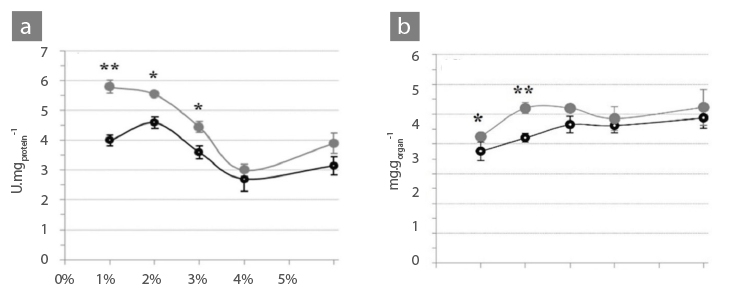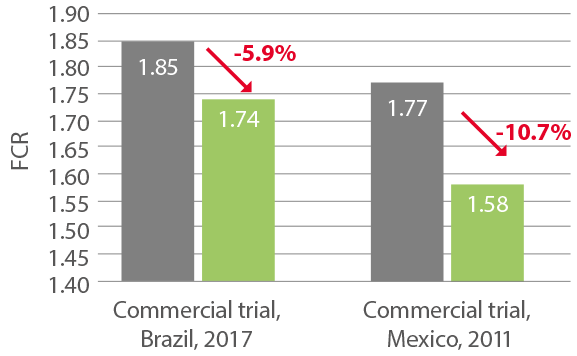Blog | Reading Time 2 minutes
Enhancing shrimp feed efficiency
Shrimp farming is growing in many areas of the world. Feed represents more than 50% of shrimp production costs, and feed conversion ratio (FCR) is key to farm performance and profitability. Furthermore, an effective feed conversion limits the release of organic waste into water and pond soil, which can degrade the rearing environment and is associated with health risks to the shrimp population. New data confirm how probiotic bacteria can help improve feed utilization.
Dietary carbohydrates in shrimp
Shrimp feed contains starch, typically from vegetable meals and binders. However, shrimp don’t utilize carbohydrates efficiently due to their low carbohydrate digestion capacity, weak glucose regulatory ability, and overall poor glucose metabolism.
1. The action of probiotics
The probiotic strain Pediococcus acidilactici CNCM I-4622 (BACTOCELL) is the only strain currently registered by the European authorities for use in aquaculture. Its modes of action and benefits have been documented in 25 years of scientific research.
A recent study illustrates the probiotic’s ability to improve the above-mentioned limitations to shrimp carbohydrate utilization (Castex et al., 2021):
- BACTOCELL supports amylase activity, which results in higher carbohydrate utilization, as proven by higher glycemia levels (Figure 1).
- As a result, more energy is available from the feed, sparing proteins for growth.
- Higher glycemia was also linked to improved antioxidant status in that study.

Figure 1. Effect of the probiotic supplementation on (a) amylase activity, (b) glucose level in haemolymph of L. stylirostris according to ration size (* p < 0.05, ** p < 0.01) (Castex et al., 2021).
In addition, BACTOCELL is documented to reduce the prevalence of undesirable bacteria such as Vibrio sp. in the shrimp gut and to promote a more diverse and functional gut microbiota. This is often associated with improved gut health and integrity and results in more efficient nutrient absorption and feed utilization.

Figure 2. Effect of shrimp supplementation with BACTOCELL on feed conversion ratio: example of two commercial trials (Lallemand internal results)
2. Improved FCR
Many trials in commercial farms confirm that these benefits on gut microbiota and digestion are translated into improved FCR (Figure 2), survival rate, and health status. Altogether, it can lead to higher revenue (more biomass harvested) for the farmer with a positive return on investment.
Published Apr 12, 2022 | Updated May 30, 2023
Related articles
Need specific information?
Talk to an expert